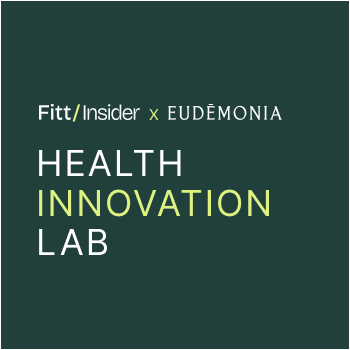Limitless
In the 2011 film Limitless, Bradley Cooper plays a struggling writer turned successful stock trader and eventual US Senate candidate who rises to prominence thanks to mysterious drug called NZT-48. Flash-forward to the present day and countless wellness companies are touting various pills, powders, and elixirs that promise to biochemically upgrade human cognition. Have these brands replicated NZT-48 or are nootropics nonsense? Let’s take a look.
Noo who? Nootropics are drugs, supplements, or other substances that may improve cognitive functions, like memory, alertness, creativity, and focus. The key word there, and one that we’ll explore in greater detail, is “may”. But, whether or not they actually work, smart pills have become a massive business.
- Globally, the dietary supplement market could reach $194.6B by 2025.
- The global brain health market is expected to reach $11.6B by 2024.
- The nootropics-specific market is projected to grow to $6B by 2024.
How we got here: Derived from the Greek words: “nous” and ”tropein”, nootropic means “mind-bending”. However, in this case, unlike psychedelics, nootropics bend the mind toward high performance, not higher consciousness.
“Man is not going to wait passively for millions of years before evolution offers him a better brain.” ― Dr. Corneliu Giurgea
Originating with Dr. Corneliu Giurgea, a Romanian chemist and psychologist, who is credited with coining the term in the 1970s, nootropics have since become a prominent part of the modern-day Wellness Industrial Complex. Now, companies like Joe Rogan-endorsed, Onnit Labs or biohacking-focused HVMN peddle products under the premise that a specific mixture of antioxidants, amino acids, and plant extracts can improve your mind.
The rise of brain-boosting drugs is being driven by a few key factors, including hustle culture, burnout, lax regulations, and a subjective definition of wellness.
Hustle Culture. Whether it’s Wall Street bankers, Silicon Valley techies, college students, or anyone striving to climb the corporate (or societal) ladder, the pressure to keep up has never been greater. Coupled with the fact that, thanks to social media, this pressure is seemingly inescapable, the lure of a magical, mind-enhancing pill certainly has its appeal.
Burnout. Competition anxiety occurs when the demands of work, sport, or life exceed our perceived abilities. Feelings of stress, inadequacy, or simply trying to stay awake through a 16-hour workday are have led to an uptick in anxiety and burnout. As a result, brain doping has become a practice for individuals seeking an edge in a winner-take-all environment.
Lax Regulation. Collectively, the medical community is skeptical of nootropics — the effectiveness, side effects, and dose dependency are not well understood. However, because they are categorized as supplements, not drugs, most nootropics go unregulated by the FDA. Meanwhile, prescription medications with FDA approval are not intended for off-label use by healthy individuals seeking cognitive enhancement.
Wellness. Framed through the lens of burnout and anxiety, the current state of wellness makes sense. At the most basic level, we want to look and feel better. We also want to live longer, have better sex, and elevate our consciousness. Given this expansive definition, nootropics have free reign in the world of wellness.
In the most basic sense, smart drugs are to cognitive function what protein powder is to strength training — a supplement intended to boost performance. But in reality, the potency of these pills, like the motivations for consuming them, range from harmless to unhealthy. From commonplace ingredients like caffeine to prescription amphetamines, the brain-boosting landscape is vast and varied.
Supplements. Whether its performance and productivity or a holistic approach to well-being, brands have been quick to tap this emerging market. Implementing the playbook we laid out in the New Wellness Lexicon, modern nootropic merchants are repackaging functional ingredients into cure-alls that prey on our shortcomings or play up an aspirational version of who we could become.
Examples include: Onnit Labs’ Alpha Brain, Four Sigmatic, HVMN, TruBrain, BrainGear, The Nue Co., and even Goop’s Nerd Alert.
Prescriptions. Commonly prescribed to patients with ADHD, Adderall and Ritalin have been adopted as cognitive enhancers by individuals seeking a brain boost. Of note, these prescription medications are amphetamines that can be highly addictive and cause nervousness, headaches, sleeplessness, and decreased appetite, among other side effects.
Similarly, PROVIGIL, a stimulant known generically as modafinil, NUVIGIL, and piracetam are prescription medications whose off-label uses include enhanced cognition.
Circling back. We’ve yet to see a mainstream pill on par with NZT-48. But there’s no denying the demand.
To date, the attempts at going limitless seem to break out into two tracks. First, unproven and unregulated supplements who rely on marketing, not medicine, to prop up their claims. And second: prescription medication that does deliver on the promise of improved cognition but is not intended for everyday consumption by otherwise healthy individuals. Still, over 16M Americans use these stimulants to increase mental stamina and bolster concentration.
Takeaway. Like physical fitness, mental health, beauty, and sexual performance, self-enhancement of cognition now fits squarely under the umbrella of wellness. As such, the veneer of well-being gives us credence to chase cognitive perfection at all costs. And in this case, perfection appears to be the ability to never tire of work. Which also happens to be a direct contradiction to our pursuit of wellness in the first place.
🎙 Introducing the Fitt Insider Podcast
We’ve been working hard behind the scenes, and now we’re excited to introduce the Fitt Insider podcast.
What to expect: This weekly interview show features conversations with the entrepreneurs, executives, and investors who are redefining the business of fitness and wellness.
Every Tuesday, your host (and my brother/co-founder), Joe Vennare, will be discussing the most important topics impacting boutique studios, the future of food, fitness technology, and emerging wellness trends with industry leaders and decision-makers.
Tune in: Episode #01, a conversation with Hydrow CEO & Founder Bruce Smith, is live.
In this episode, we discussed Bruce’s goal to make rowing more accessible, Hydrow’s place in the connected fitness landscape, and how the company could use augmented reality to create at-home experiences like rock climbing.
Connected fitness is cool, but that’s not the point. The point is that [rowing] cuts your workout time in half, makes you feel like you’re part of a special community, allows you to experience rhythm in your daily life, and we can bring you to a really special place. — Bruce Smith, Hydrow CEO
Hear it all by heading to Fitt Insider on Apple Podcasts. And if you like what you hear, take a second to subscribe, rate, and review the show.
👕 Fitness & Fashion
SoulCycle is doubling-down on its DTC retail ambitions. As Glossy points out, the indoor cycling company is transforming into a full-fledged direct-to-consumer fashion brand.
For more than a decade, SoulCycle has sold limited-edition apparel designed by or sourced from a third-party. But the company’s most recent line was created by its in-house design team. And now, SoulCycle is introducing three new initiatives aimed at advancing their apparel efforts, including:
- Offering an affiliate program for instructors
- Partnering with Instagram for product drops
- Relaunching its e-commerce platform
According to Caroline Gogolak, SoulCycle’s VP of retail, the brand’s e-commerce sales are up nearly 90%, with non-riders accounting for 25% of e-commerce sales.
Zooming out. With the global athleisure market set to reach $547B by 2024, apparel sales can add significant value to a studio’s bottom line. But the potential upside stretches beyond the balance sheet. Thanks to the convergence of fashion, fitness, and beauty, gyms and studios have become the curators of an aspirational wellness lifestyle. Similarly, retailers are courting wellness consumers with in-store workouts and fitness-themed events.
Punchline. As retailers fight to remain relevant and boutique studios confront the “Netflix of fitness”, expect to see more emphasis placed on new offerings—like apparel and in-person experiences—that strengthen the consumer relationship and deepen brand affinity.
📰 News & Notes
- WHOOP partnered with Joe Rogan and friends to track performance for “Sober October”.
- Telemedicine startup hims to open a 300,000-square-foot pharmacy in Columbus, Ohio.
- Hill City, Gap’s activewear brand for guys, pops up in SF, will sell in some Athleta stores.
- RXBAR founder Pete Rahal opens up about ‘the other side’ of his $600M exit to Kellogg’s.
- Profitable Italian fitness-equipment manufacturer Technogym readies to rival Peloton.
💪 Meet Public Recreation
This week’s startup spotlight features Public Recreation, an outdoor fitness concept launching micro gyms in outdoor spaces. The company offers unlimited outdoor strength training, yoga, and boxing classes for $60 a month.
We spoke with co-founders Jennifer Pattee, Adam Green, and Emilie Buckley >> Read the full Q&A here.
💰 Money Moves
- Organic grocer and cafe Erewhon Market received an undisclosed minority investment from growth equity firm Stripes Group to support expansion beyond Los Angeles.
- Modern Acupuncture, a fast-growing acupuncture franchise, closed a Series A funding round led by Strand Equity with participation by actress Cameron Diaz. Terms were not disclosed.
- Plant-based food startup Impossible Foods won’t go public any time soon. Instead, CEO Patrick Brown said they’ll raise even more money, adding to the company’s $685.7M in total funding.
- Natalist, a women’s fertility testing startup, raised $5M in seed funding led by Cowboy Ventures, with Collaborative Fund, Fuel Capital, Rock Health, and Xfund also participating.
- Tend, a dental wellness startup, closed a round of Series A funding led by Redpoint Ventures, bringing the company’s total amount raised to $36M.
- BellRing Brands, the active nutrition business of Post Holdings Inc., will offer 30M Class A shares in an upcoming IPO.
- Ontario-based cannabis company Canopy Growth Corp. acquired a majority stake in BioSteel Sports Nutrition Inc. with plans for CBD-integrated sports products. More from Fitt Insider >> Weed is Wellness
- Herbal tea brand Yogi Tea acquired Choice Organic Teas. Terms of the deal were not disclosed.
- Mon Ami, a senior care and companionship startup pairing college students with senior citizens, closed $3.4M in seed financing led by Freestyle Ventures and Cowboy Ventures.
- The Smart Protein project, an academic effort to research sustainable alternative protein sources, received €8.2M in funding from the European Union’s Horizon 2020 program.






